The Importance of High-Quality PCBs in the Automotive Industry
Automotive PCBs must withstand harsh environmental conditions, including extreme temperatures, vibrations, and exposure to moisture and chemicals. They also need to meet stringent safety and reliability standards to ensure the proper functioning of critical vehicle systems. High-quality PCBs are essential for:
- Ensuring vehicle safety
- Improving reliability and durability
- Enhancing vehicle performance
- Supporting advanced features and technologies
Key Factors to Consider When Choosing a PCB Manufacturer
When selecting a PCB manufacturer for automotive applications, consider the following factors:
1. Automotive Industry Experience
Choose a manufacturer with extensive experience in producing PCBs for the automotive industry. They should have a deep understanding of the unique requirements and challenges of automotive electronics.
2. Quality Management Systems
Ensure that the manufacturer has a robust quality management system in place, such as IATF 16949 certification. This certification demonstrates the manufacturer’s commitment to continuous improvement, defect prevention, and customer satisfaction in the automotive industry.
3. Manufacturing Capabilities
Assess the manufacturer’s capabilities in terms of PCB complexity, layer count, material selection, and special features. They should be able to produce PCBs that meet the specific requirements of your automotive application.
4. Testing and Validation
Verify that the manufacturer has comprehensive testing and validation processes in place to ensure the reliability and performance of their PCBs. This may include:
- Automated optical inspection (AOI)
- X-ray inspection
- In-circuit testing (ICT)
- Functional testing
- Environmental stress testing
5. Supply Chain Management
Choose a manufacturer with a robust supply chain management system to ensure the timely delivery of high-quality PCBs. They should have established relationships with reliable suppliers and be able to manage inventory effectively.
Top PCB Manufacturers for the Automotive Industry
Here are some of the leading PCB manufacturers that cater to the automotive industry:
| Manufacturer | Headquarters | Key Features |
|---|---|---|
| Foxconn | Taiwan | – Global presence – High-volume production – Advanced manufacturing capabilities |
| TTM Technologies | United States | – Extensive automotive experience – IATF 16949 certified – Global manufacturing footprint |
| Nippon Mektron | Japan | – Leading supplier of flexible PCBs – Strong focus on automotive applications – Innovative solutions for electric vehicles |
| Unimicron | Taiwan | – Comprehensive PCB solutions – Automotive-grade manufacturing – Advanced materials and technologies |

Automotive PCB Manufacturing Process
The manufacturing process for automotive PCBs involves several key steps:
- Design and Layout
- Schematic design
- PCB layout
-
Design for manufacturability (DFM) analysis
-
Material Selection
- High-quality substrates
- Copper foils
- Solder masks
-
Surface finishes
-
PCB Fabrication
- Etching
- Drilling
- Plating
-
Lamination
-
Assembly
- Surface mount technology (SMT)
- Through-hole technology (THT)
-
Automated optical inspection (AOI)
-
Testing and Validation
- In-circuit testing (ICT)
- Functional testing
- Environmental stress testing
- Burn-in testing
Advanced Technologies in Automotive PCBs
As the automotive industry evolves, PCB manufacturers are developing advanced technologies to support the growing demands of modern vehicles. Some of these technologies include:
1. High-Density Interconnect (HDI) PCBs
HDI PCBs offer higher circuit densities, allowing for more compact and lightweight electronic systems. They are essential for advanced driver assistance systems (ADAS) and infotainment systems.
2. Flexible and Rigid-Flex PCBs
Flexible and rigid-flex PCBs provide improved reliability and space savings in automotive applications. They are ideal for applications that require flexibility, such as wiring harnesses and sensors.
3. Thermal Management Solutions
Effective thermal management is crucial for automotive PCBs, especially in high-power applications like electric vehicle charging systems. PCB manufacturers are developing advanced thermal management solutions, such as:
- Metal core PCBs
- Insulated metal substrates (IMS)
- Thermal vias and heat sinks
4. Embedded Components
Embedding components within the PCB layers can reduce the overall size and weight of electronic systems. This technology is particularly useful for space-constrained applications in vehicles.
Automotive PCB Design Considerations
When designing PCBs for automotive applications, engineers must consider several key factors:
- Environmental Conditions
- Temperature extremes
- Vibration and shock
- Humidity and moisture
-
Chemical exposure
-
Electromagnetic Compatibility (EMC)
- Electromagnetic interference (EMI) shielding
- Grounding and filtering
-
Proper layout techniques
-
Signal Integrity
- Impedance control
- Crosstalk reduction
-
Proper termination and routing
-
Power Integrity
- Adequate power delivery
- Decoupling and bypassing
- Voltage drop minimization
Future Trends in Automotive PCBs
As the automotive industry continues to evolve, PCB manufacturers must stay ahead of the curve to meet the growing demands of future vehicles. Some of the key trends shaping the future of automotive PCBs include:
- Miniaturization and Integration
- Smaller, more compact PCBs
-
Integration of multiple functions on a single board
-
Advanced Materials
- High-temperature substrates
- Low-loss dielectrics
-
Embedded passive components
-
5G and Vehicle-to-Everything (V2X) Communication
- PCBs designed for high-frequency, high-bandwidth communication
-
Support for 5G and V2X technologies
-
Autonomous Driving and ADAS
- High-performance PCBs for sensor fusion and data processing
- Robust and reliable designs for safety-critical systems
FAQ
1. What certifications should I look for in an automotive PCB manufacturer?
Look for manufacturers with IATF 16949 certification, which demonstrates their commitment to quality management in the automotive industry. Other relevant certifications include ISO 9001 and ISO 14001.
2. How do I ensure the reliability of automotive PCBs?
To ensure reliability, choose a manufacturer with extensive experience in automotive PCB production, robust quality control processes, and comprehensive testing and validation capabilities. Proper design and material selection also play a crucial role in PCB reliability.
3. What are the key challenges in automotive PCB design?
Some of the key challenges in automotive PCB design include managing environmental conditions, ensuring electromagnetic compatibility, maintaining signal and power integrity, and accommodating the growing demands for miniaturization and advanced features.
4. How can I reduce the cost of automotive PCBs without compromising quality?
To reduce costs without compromising quality, consider optimizing your PCB design for manufacturability, leveraging standard materials and processes where possible, and establishing long-term partnerships with reliable PCB manufacturers.
5. What are the future trends in automotive PCBs?
Future trends in automotive PCBs include increased miniaturization and integration, the adoption of advanced materials, support for 5G and V2X communication technologies, and the development of high-performance PCBs for autonomous driving and ADAS applications.
Choosing the right PCB manufacturer is critical for the success of automotive electronics projects. By considering factors such as automotive industry experience, quality management systems, manufacturing capabilities, and advanced technologies, you can ensure that your PCBs meet the stringent requirements of modern vehicles. As the automotive industry continues to evolve, partnering with a reliable and innovative PCB manufacturer will help you stay ahead of the curve and deliver high-quality, reliable electronic systems for the vehicles of the future.
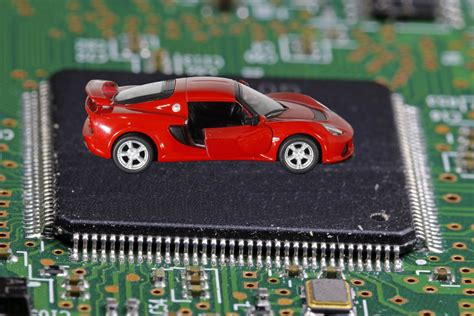
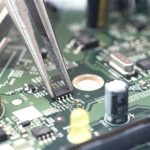
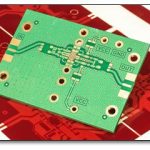
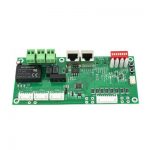
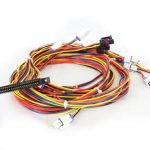
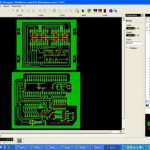
Leave a Reply